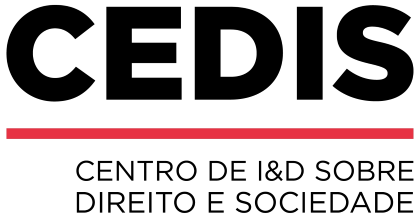The activities of the first Thematic Line aim to benefit thousands of people worldwide by strengthening the protection of fundamental and human rights, in view of SDG 5 ‘Gender Equality’ and SDG 10 ‘Reduced Inequalities’. The work of this Thematic Line focuses primarily on the protection of fundamental and human rights by means of combating discrimination, particularly concerning gender and race (A1), as well as family (A2); through human-oriented migration policies and laws (A3); through data protection, particularly in relation to new and emerging technologies (A4); in corporate settings and through enabling corporate social responsibility (A5); and through human-oriented criminal law (A6). This Thematic Line also includes various projects related to the protection of human rights in areas affected by crisis and international conflicts (A7).
A1) Antigone – Equality and Discrimination Law, focusing on equality and anti-discrimination law, including an Observatory of Racism and Xenophobia.
A2) NOVA Centre for the Study of Gender, Family and Law (NOVA GF Law), conducting comparative analyses on Family Law in its relation to issues of Gender and Religion.
A3) NOVA Refugee Clinic, addressing emerging challenges related to migration and asylum law, evaluating existing legal and policy responses, and advocating for asylum seekers’ rights in Portugal.
A4) Observatory for the Protection of Personal Data, assessing EU data protection laws, especially regarding new technologies.
A5) NOVA Business, Human Rights and the Environment (NOVA BHRE), promoting responsible business practices, ensuring respect for human rights, decent work, and environmental standards in global value chains.
A6) Criminalia, comprising three projects: a) The Criminalia Collection; b) New times, new crimes, new criminal laws? ; c) The ‘Observatory for Administrative Offences.
A7) War and Law Lab, examining the intersection of warfare and legal frameworks, with a focus on compliance with international humanitarian law in conflict zones and protection of civilian populations and vulnerable groups during armed conflicts.
This Thematic Line aims to bring about sustainable change that will impact positively on the planet, humanity, other species and future generations, in view of SDG 7 ‘Affordable and Clean Energy’, SDG 13 ‘Climate Action’, SDG 14 ‘Life Below Water’ and SDG 15 ‘Life on Land’. The work of this Line focuses mainly on the following areas of research: protection of land, which includes the study of the impact of human practices on the environment, climate, and energy (B1); protection of the ocean (B2) and airspace (B3). It is also dedicated to exploring how we can employ or even re-design intellectual property laws in a world that strives for sustainable development (B4).
B1) NOVA Green Lab, focusing on environmental, climate, and energy law, as well as the implementation of the European Green Deal.
B2) NOVA Ocean, coordinating the project “Portuguese Blue Biobank and Women in the Blue Economy study”, advocating for sustainable practices in marine bioprospecting.
B3) Space Law Research Centre (SPARC), focusing on international space law, space industry, militarization, and peaceful uses of space.
B4) NOVA Intellectual Property and Sustainable Innovation (NOVA IPSI), exploring the intersection of IP Law and sustainability.
This Thematic Line consists of three strands, in view of SDG 12 ‘Responsible Consumption and Production’ and SDG 16 ‘Peace, Justice and Strong Institutions’. The first strand aims to bring about change: in compliance with regulations required of companies and institutions throughout the whole economic process (C1); in the consumption of public and private goods and services (C2); and in the financial market (C3). The second strand aims to intervene in three key moments of the legal process: the creation of law (C4); legal reasoning (C5); and dispute resolution (C6). Lastly, the third strand aims to change the way we govern the cities of the future (C7) and the way we distribute benefits through taxation (C8). This line also aims to transform the way we perceive and practise legal science by integrating data analysis tools developed in social sciences into legal methodology. It argues that since law is born and acts within society, improving the law necessitates understanding society’s dynamics (C9).
C1) NOVA Compliance Lab, proposing effective measures to prevent corruption in public and private sectors.
C2) NOVA Consumer Lab, researching consumer law in various sectors, including the digital economy.
C3) NOVA Financial Markets KC, monitoring financial market developments and regulations, in order to protect consumers.
C4) Portuguese Legislative Observatory, evaluating legislative procedures, effectiveness, duration and compliance.
C5) NOVA Argumentation, focusing on legal argumentation and reasoning.
C6) NOVA Dispute Resolution Forum, covering various dispute resolution methods, such as mediation, commercial and investment arbitration, as well as civil and public procedural law.
C7) WhatNext.Law, exploring legal challenges in emerging technologies (mobility, automation, the digital economy, space, biotechnology, and smart cities) and their consequences for sustainability.
C8) NOVA Tax Research Lab, addressing taxation challenges from comparative perspectives.
C9) The Data Driven-Law Centre, redesigning legal instruments, and measuring the impact of public policy decisions using data-driven approaches.


